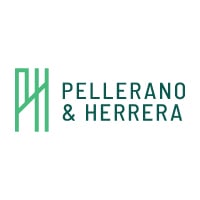

Head of legal document preparation department | Ministerio de Hacienda de la República Dominicana



Claudia Marianela Castro Inoa
Head of legal document preparation department | Ministerio de Hacienda de la República Dominicana
Team size: 12
How do you approach managing legal aspects during periods of instability or crises, and how does your legal strategy align with the broader business strategy to ensure the organisation’s resilience?
During periods of crisis, the management of legal aspects takes on different nuances both in its execution and in its approach, as this constitutes an essential tool for its proper handling and the achievement of objectives that must be carried out promptly through the identification of internal and external risks associated with the actions to be implemented and ensuring strict compliance with legal norms and internal control. The design and implementation of the crisis management plan requires constant support from legal advisors to structure legal strategies that ensure timely and effective mitigation of adverse effects. In this sense, we cannot speak of an institutional strategy and a legal strategy separately, as these must be integrated to ensure the success of the organisation.
What are the main cases or transactions you have been involved in recently?
Our team has recently been involved in the validation processes of the legal documentation related to the issuance and placement of external and internal debt of the country, as well as those derived from liability management operations, highlighting in this regard the first issuance of green bonds by the Dominican Republic. Also, we participate in the review and negotiation processes of credit agreements with various international organisations for the financing of public investment projects, and in the various agreements signed by the institution.
What emerging technologies do you see as having the most significant impact on the legal profession in the near future, and how do you stay updated on these developments?
Currently, emerging technologies have been incorporated into the practice of the legal profession, having a significant impact, which we can observe with the popularisation of the term “legaltech” to refer to this phenomenon. We see how law firms, public administration, and the judicial system have made use of these new technologies for comprehensive management of internal processes, cost reduction, and streamlining the services provided to the public and citizens. Including new technologies into public administration has become a priority for the state, coordinating sectoral plans and initiatives to achieve digital transformation.
Artificial intelligence is one of the emerging technologies that we understand would have a significant impact on the practice of the profession. However, its use presents important challenges derived from proper regulation, ethical use, and data protection.
In our professional practice, we stay up to date regarding the implementation of new technologies in the legal field through the national bodies whose mission is their implementation and regulation within the public sector, which is our area of practice, to maintain efficient management while ensuring the effective protection of the right to good public administration.
In your opinion, what are the main trends that are salient in your country currently (these can be legal, political, economy or business-based)?
Among the main trends in the public sector of the Dominican Republic, we can highlight the implementation of anti-bribery management and regulatory compliance systems in state bodies and entities through the adoption of International Organization for Standardization (ISO) standards. This contributes to the development of a compliance culture within institutions and the effective identification and prevention of corruption risks, thus enhancing transparency and the proper use of public funds. It can be observed that not only have public institutions adopted standardised compliance policies, but also a Regulatory Compliance Program has been designed at the level of public procurement to institutionalise the prevention of non-compliance risks in public procurement procedures carried out by state bodies and entities.
Head of legal documentation | Ministry of Finance of Dominican Republic